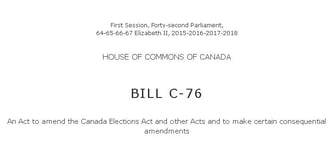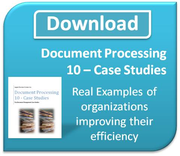The Canadian Federal Government has introduced revisions to the Canada Elections Act designed to address concerns about how electronic interference affects future voting. Given all the controversy about US, European and other jurisdictions being affected by both individual and country sponsored hacking during elections this is a timely and  important topic for Canada given the numbers of elections coming over the next couple of years,
important topic for Canada given the numbers of elections coming over the next couple of years,
There appears to be no doubt that active and aggressive tactics have been used to try to impact elections in many locations. Some of these are driven by national interests but there are also instances where individuals or groups or people attempt to use social media, web information and other electronic devices to influence the views of potential voters.
Often the underlying sources of these kinds of actions are hidden behind some innocent sounding interest group which puts forward a certain point of view without disclosing their specific interest in the matter.
The proposed changes include explicitly making hacking to affect an election an offense. They also prohibit foreign nations from posting advertising or sponsoring advertising during elections. There are many more provisions which can affect how political parties handle private data, how groups attempt to impact elections and distribution of false information in advertising by parties.
Government backgrounder and more details:
Underlining why changes to this type of legislation are important is a clear understanding that we don't totally understand how important cyber threats are to us individually and corporately. This is explained well in a recent article outlining the comments of an ex-national security advisor at a recent conference as reported in IT World Canada.
"Every individual, organization and government is under threat from online attack," he said.
For Fadden, what he calls cyber propaganda –including using the Internet to recruit terrorists — “is the most insidious cyber threat because it’s not always visible.”
Political News
The same can be said of the use of articles which show only one side of an issue as part of an argument during elections and not having them attributed to a reputable source.
Watch what you see coming through your social media feeds during the periods of election activity over the next few months and see if you are comfortable that all of what you get shown is being delivered by a reputable player. My guess is it will not always be so and much of what you will see could fall into the description of cyber propaganda.
Data Counts
With the massive amount of data which is collected each day, information can easily be skewed and targeted if it becomes the product of someone or some group with a specific agenda to promote. This makes the management of your data and that of organizations to which you may belong increasingly more critical.
In the end data protection and proper use is the role of everyone in society and we all must work hard to make sure if we see it misused that we report it or call it out.




